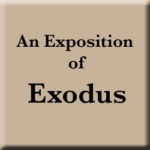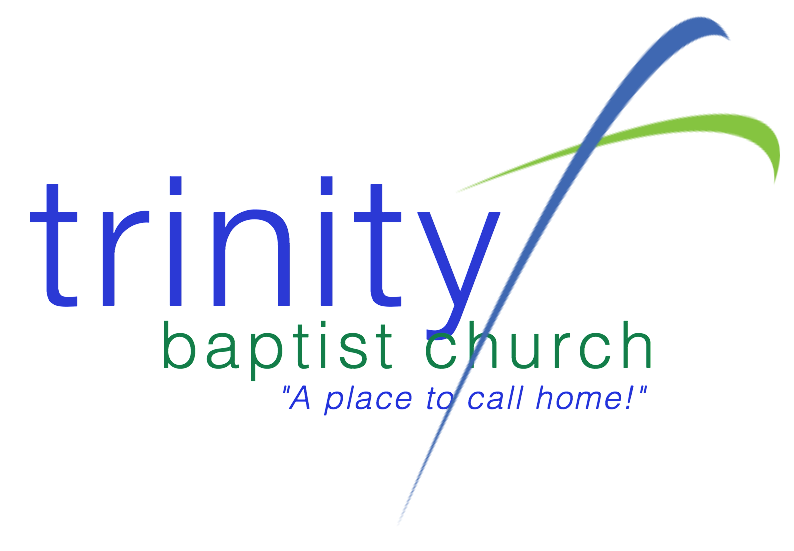
This exposition of Exodus 7:14-25 by Pastor Rod Harris was delivered at Trinity Baptist Church on Sunday morning, July 15, 2018.
Intro:
You know it had to be galling. He was like a bad penny - he just kept turning up. Every time Pharaoh thought he was through with the troublesome shepherd he was back again.
[sections collapse="always"][section title="Read More"]
It was early morning. Pharaoh had gone down to the river, as was his daily custom, to offer sacrifice to the gods of the Nile. There on the banks of the Nile stood Moses and his brother Aaron. I imagine Pharaoh, in disgust said, “Now what?” It is another epic showdown. This is a showdown, not between Moses and Pharaoh but between the true and living God and the gods of the Egyptian pantheon. When first confronted back in chapter 5 Pharaoh said, “I don’t know this God of yours, why should I listen to him?” By the time the Sovereign One is through with him, he will know Him. Our text this morning is found in Exodus chapter 7 beginning with verse 14.
Text: Exodus 7:14-25
What follows beginning here in verse 14 and continuing through the end of chapter 12 is a series of “signs and wonders” or judgments. God makes a demand of Pharaoh, let my people go. He refuses, God comes in judgment, Pharaoh’s heart is further hardened. Repeat. This continues until death reigns throughout the land of Egypt and Pharaoh forces the children of Israel to leave. God is sovereignly, righteously coming against Pharaoh. What appears a series of unfortunate natural disasters is, in fact, the hand of God heavy upon an obstinate king and his people. I will admit there are questions in all of this. What about God “hardening” Pharaoh’s heart (3:19; 4:21; 7 ;3-4, 13, 22)? There are other text that speak of Pharaoh hardening his own heart. Which is it? did God harden it or did Pharaoh? Yes! Both. Pharaoh refused to bow to the LORD and the LORD did not intervene but let him have it his way. The hardening of Pharaoh’s heart was a matter of the LORD leaving Pharaoh to his own desires. The kind of judgment we read about in Romans 1 when God “gave them over” to their own lusts.
There is another issue. As you read through Exodus 7-12 and you witness 9 ineffective judgments and the decisive blow when death engulfs the land of Egypt, knowing that God knew exactly what was going to happen - you cannot help but ask, “Why?” These judgments run from passing discomfort, to revolting invasion of frogs and disease bearing gnats and flies, to the death of livestock, to debilitating boils, to environmental disasters such as hail and locusts, to terrifying darkness and finally heart-stopping sadness with the death of the firstborn and you have to ask, “Why?”
To answer that you would need to understand God’s attitude toward obedience and disobedience. He is God. He is sovereign. Lord of all. He is to be obeyed. Obedience is prized, disobedience is abhorring. Why? Because obedience is the primary characteristic of God’s people. They obey Him. They serve Him. They bring glory and honor to Him, they worship Him. Disobedience is the primary offense. Disobedience is no minor thing. It is a very serious matter.
Go back to the Garden.
Don’t eat the fruit off of the tree in the midst of the Garden.
The day you eat of it - you will die.
Through the one act of disobedience - Adam, and the whole human race, lost everything.
Disobedience is treason.
God is God and He is to be obeyed.
We are troubled by the plagues because we do not accept the wrath of God against sin and the judgment of God upon sinners. We prefer the bliss of a kingdom of God without moral absolutes, presided over by a God without wrath and to enter through a Christ without a cross. But the price is too high. Because to get that, we would not just disregard this little thing or that little truth but we would have to disregard the whole God-given book! It requires doing away with the gospel!
With that as our background, let’s look at our text…
As we work our way through this text we discover that…
Thesis: Moses’ clash with Pharaoh on the banks of the Nile powerfully reveals the issues at the heart of the great battle of the soul.
There are three things I want us to note from our text.
- Our Sovereign God’s demands are non-negotiable. (7:14-16)
- Our petty idols prove to be false gods incapable of delivering us. (7:17-22a)
- Our stubborn hearts refuse to believe despite overwhelming proof. (7:22b-25)
Conclusion:
God has promised that his war with Satan will end with the defeat of every false god. Listen to this from the 16th chapter of the Revelation - 16:3-7. The second angel poured out his bowl into the sea, and it became like the blood of a corpse, and every living thing died that was in the sea. The third angel poured out his bowl into the rivers and the springs of water, and they became blood. And I heard the angel in charge of the waters say, Just are you, O Holy One, who is and who was, for you brought these judgments. For they have shed the blood of saints and prophets, and you have given them blood to drink. It is what they deserve! And I heard the altar saying, Yes, Lord God the Almighty, true and just are your judgments!
This awesome, fearsome judgment is the say as that visited upon the Egyptians.
Though given a chance to repent they did note - 16:9 - …They did not repent and give him glory.
If you learn nothing else from the book of Exodus learn this - do not trust in other gods, for they cannot save.
[/section][/sections]
